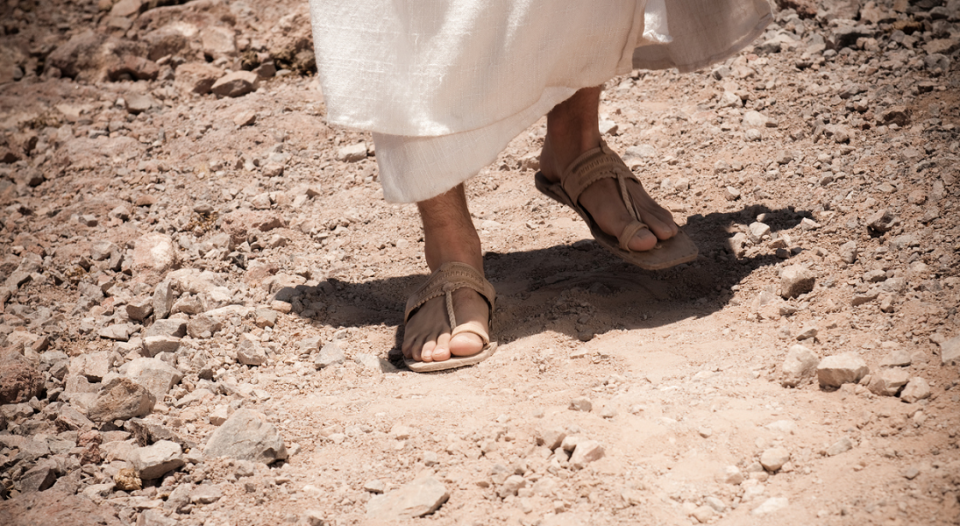Lectionary blog for July 2
Fourth Sunday after Pentecost
Genesis 22:1-4; Jeremiah 28:5-9; Psalm 13,
Psalm 89:1-4, 15-18; Romans 6:12-23; Matthew 10:40-42
Some things ought to be obvious, but, apparently, they’re not. This is the reason we have government warning labels on everything.
I read one on a beer bottle once: Consumption of large amounts of alcohol may impair judgment.
I was visiting an older parishioner once. She asked me to help her sort her medicines. On the side of her prescription sleeping pills I read: May cause drowsiness.
Like I said, some things ought to be obvious. Like the words of Jesus in our Gospel lesson: “whoever gives even a cup of cold water to one of these little ones.”
Gee whiz, does Jesus think he has to tell us to be kind to little children?
Well, the alarming statistics about child abuse in this country would indicate that there are a large number of people who do indeed need to be warned and reminded about that.
And also, ordinary kindness and generosity to little children is only a part of what Jesus is getting at here. There is a much more complex meaning in these three short verses.
The text comes at the end of a sequence in Matthew’s Gospel in which Jesus has been preparing his disciples to go out into the world to preach the kingdom. He is telling them how to respond to the variety of ways their efforts will be received.
When he says, “whoever welcomes you welcomes me, and whoever welcomes me welcomes the one who sent me,” Jesus is drawing line from the disciples through himself to the creator God. To welcome a disciple is the same as welcoming God into your home. This is a twofold promise.
One the one hand, it reminds the disciples to be humble about the reception they receive for that welcome is not for them, it is for God.
On the other hand, it reminds them that they do not go out representing themselves and their own wisdom and power; they go out representing God.
We all need to remember this as we go about our business of being Christians, disciples of Jesus in the world. It is not about us. It is about God.
Then in verse 41, Jesus drives the point home by reminding the disciples of the biblical stories of prophets and righteous person being received as a way of honoring God and serving God.
And in verse 42, he makes one of his classic reversals, turning things upside down and inside out, taking our expectations and rearranging them.
Just as we’ve gotten used to the idea of honoring important people, like disciples and prophets and Lutheran pastors as a way of honoring God, Jesus switches to talking about children: “and whoever gives even a cup of water to one of these little ones in the name of a disciple.”
See what he did? The disciples were feeling pretty good, thinking about being connected to the prophets and Jesus, and even God, and then the tables are turned and they are being compared to children.
The message of Jesus, the message of the kingdom of God, the message that is the gospel is a message of reversal, of upside down and sideways values. There those who are seen by the world to be on top are known to really be on the bottom, and those on the bottom are esteemed by God as the most important of all.
In this little text Jesus subtly moves the disciples through a sequence that leads them away from thinking about how important they are to thinking about how they can serve the least important people in the world in the name of Jesus.
A child can do no work; a child possesses no power with which to bestow favor; a child has no wisdom or prestige or significance to share. To the ancient world, most children were nothing more than a nuisance, another mouth to feed, another brat under foot until they became old enough to work at the age of 5 or 6.
So, when Jesus bestows upon them the same value as disciples, prophets and righteous people—indeed, if you follow the logic of the text, the same value as himself and God—when Jesus does this, he has done an incredibly radical and unheard of thing.
And it is just this sort of radical and unheard of thing to which we modern-day disciples and sent ones, 21st century prophets and people who aspire to be righteous, have been called.
We have been called to go out in the name of Jesus Christ to share our stuff and God’s love with those whom the world rejects and turns its back on.
We have been called to give radical hospitality to undocumented immigrants and people who keep failing in life and to those unable to work and take care of themselves.
We have been called to look at people, not with our own eyes, with the eyes of Christ.
We have been called to love the loveless, not with our cold and shriveled hearts, with the heart of Christ which overflows with love for all.
We have been called to care for others whether they deserve it or not because none of us is disciplined, righteous and prophetic enough to deserve the love of God. It has been given to us as a gift, and we are called to give it to others free of charge and free of judgment.
Yes, sisters and brothers, we have been called to the ministry of welcoming and receiving and giving and loving and the only question left is:
How will we answer that call?
Amen and amen.





